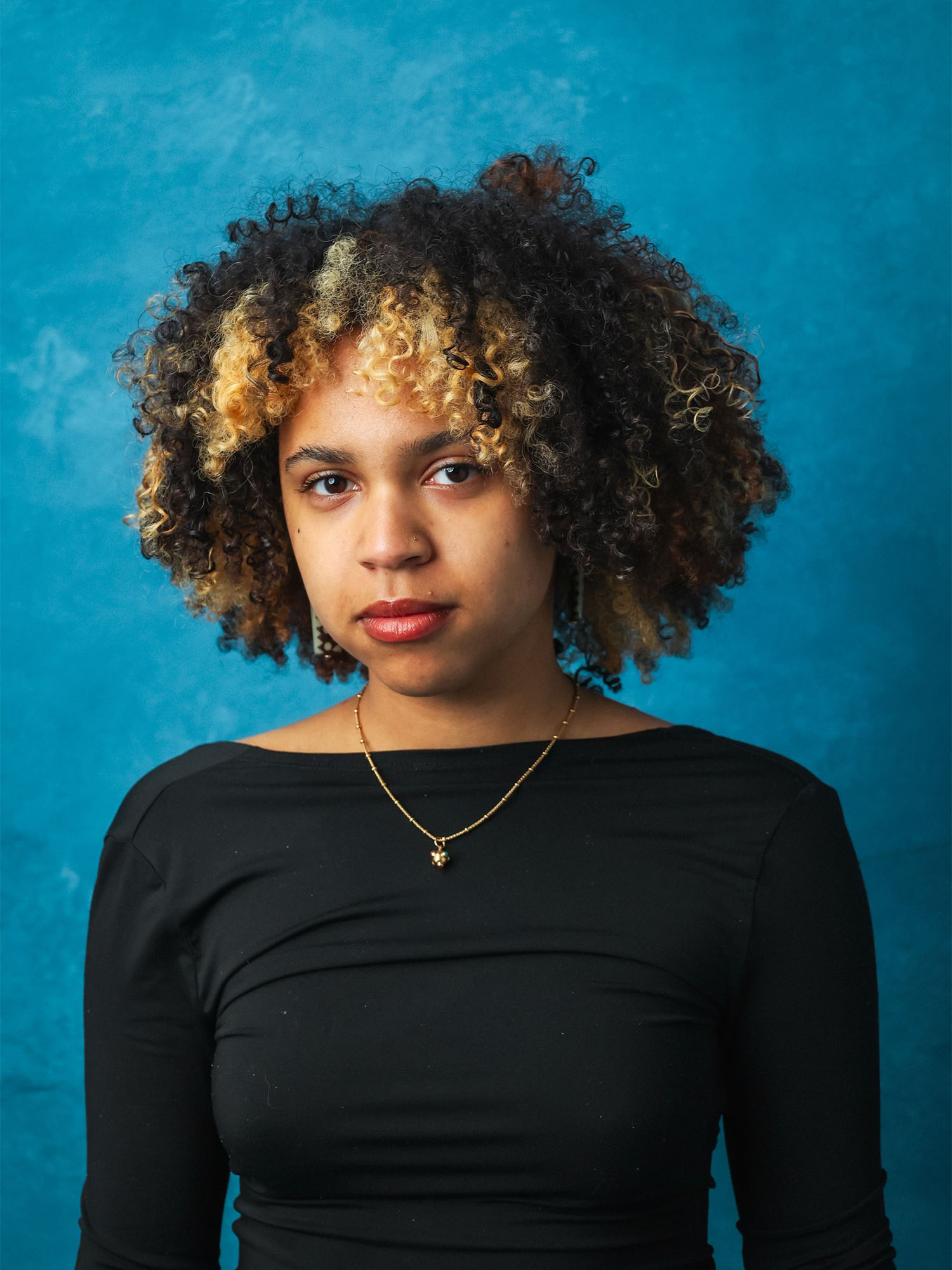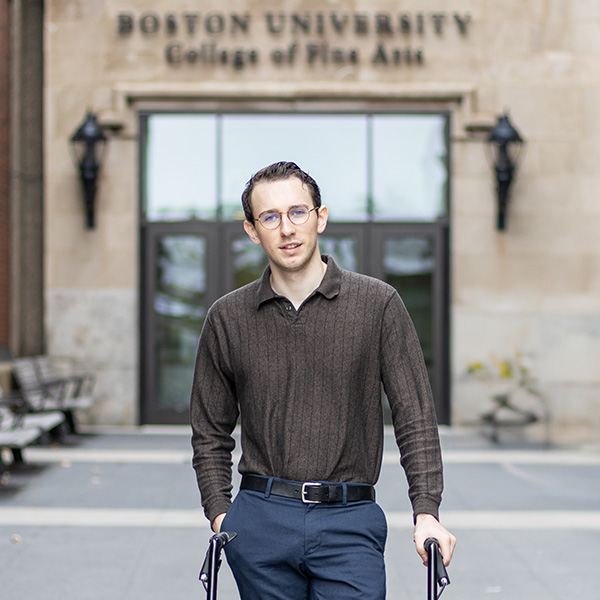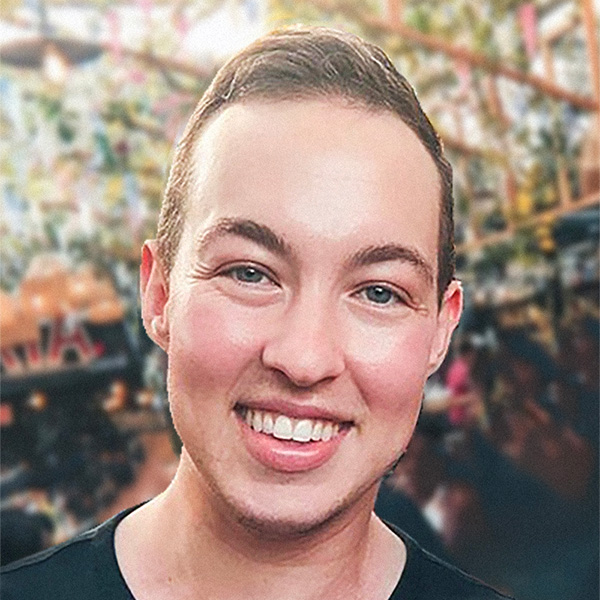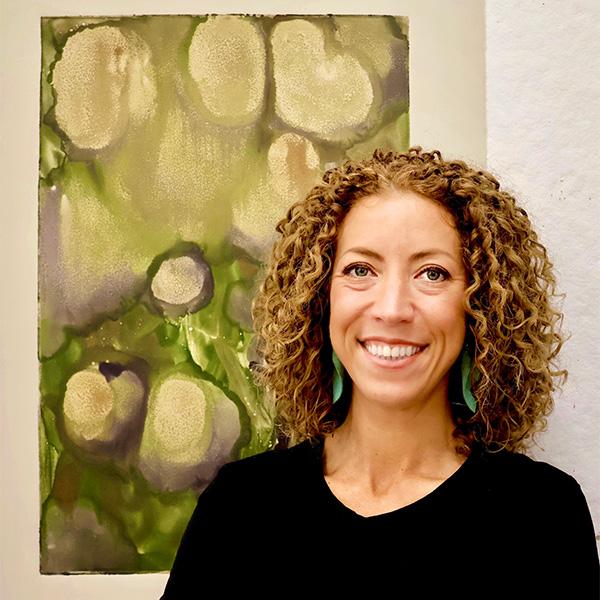Kahn Award Will Carry Theater Arts Major Madeline Riddick-Seals Back to Alabama

Madeline Riddick-Seals (CFA’24) will use her $20,000 Khan Award to support a history project in her family’s hometown of Enterprise, Ala. Photo by Julian X
Kahn Award Will Carry Theater Arts Major Madeline Riddick-Seals Back to Alabama
$20,000 prize to fund history project in historically Black neighborhood
It’s a long way from Comm Ave to Enterprise, Ala., but at least Madeline Riddick-Seals will have some help paying for her next trip back there.
A theater arts major, Riddick-Seals (CFA’24) is Boston University’s 2024 winner of the Esther B. and Albert S. Kahn Career Entry Award, with its $20,000 check intended to jump-start the career of one graduating College of Fine Arts student each year. The five other Kahn Award finalists each receive $2,500.
“I was shocked,” Riddick-Seals says, when she learned at a recent CFA ceremony that she was the winner. “I’m still in the processing part of it. Just like, realizing that this is a real thing. When you do that application, it’s an imagined use of money, you know, and now I can actually do it.”
A stage designer and director at CFA, Riddick-Seals says she plans to use the award to delve deep into Bennett Side, a historically Black working-class neighborhood in Enterprise, through oral history and design.
“I’m a scenic designer. So my idea is to interview [Bennett Side residents] about their homes and create scale models of a room in their home that is important to them, that they hold memories in,” says Riddick-Seals, who’s lived in Atlanta for the last decade, but spent her early childhood years in Enterprise.
She’ll photograph the finished products, perhaps for an exhibition or a book, but the models themselves will be given to each of the subjects.
I’m still in the processing part of it. Just like, realizing that this is a real thing.
“What’s important to me is that the families that I make them for will get to keep them,” she says, “so that it’s something that’s part of their own private collection and not necessarily something that I own.”
She’s already done something similar for her Kilachand Honors College capstone project, an oral history with her grandmother and great-aunt. “I asked them questions about their lives and their experiences as children growing up in Enterprise, especially in the ’60s and ’70s, because it was a very unique time to be living in Alabama as young girls. And then I created art based off of those interviews, to process our history.”
If that sounds a little far from stage design, think again.
“It’s the drafting, the visual research that we do, the actual physical model-making, the painting, all of these hard skills that we have gained in these four years, using those in a different context to create an art object outside of theater,” Riddick-Seals says.
“But I’ve also learned in my theater arts training how to interview people, and ethically creating social interactions that are kind and leave space for the person being interviewed,” she says. “A big thing for me and my interviewing process is allowing the person I’m interviewing to dictate how vulnerable that they get.”
In announcing the awards, Harvey Young, dean of CFA, said the project by Riddick-Seals was “impactful, unique, using the frame of oral history to offer a way for sharing and telling the story of your family, individuals who had not told their stories before in a very public way, or even a private way.”
The Kahn Award will fund project materials, equipment, and travel for the Bennett Side project, Riddick-Seals says.
The Esther B. and Albert S. Kahn Career Entry Award Fund was established in 1985 with a gift of $1 million from Esther Kahn (Wheelock’55, Hon.’86). Each spring, students completing their last semester of graduate or undergraduate studies submit proposals detailing how they would use the award to launch their careers, their concern for social issues, and their take on the artist’s role in contemporary society.
This year’s awards jurors were Gabriel Cobas, chief facilities officer, Boston Youth Symphony Orchestras; Maya French, founder and co–artistic director, Palaver Strings; Elana Harris, interim executive director, BU Arts Initiative; and Rachael Warren, resident affiliate, company member, Trinity Repertory Theatre.
The other five finalists, who each receive $2,500, are:

Spencer Hart-Thompson (CFA’24)
BA Music, School of Music
Hart-Thompson’s research focuses on accommodations and pedagogies for physically disabled students to promote equitability in music education. Spencer is a physically disabled musician and composer, and his project Music Through the Scope of Disability is a social awareness musical tour organized, written, and performed to immerse the audience into the music creation process through the lens of a student with disabilities.

Kimly Mengyin Wang (CFA’24)
DMA Collaborative Piano, School of Music
Wang is receiving her doctorate at the School of Music and already holds degrees in collaborative piano and solo piano performance from the University of Western Ontario and a performance diploma from the New England Conservatory of Music. She’s also passionate about vocal repertoire and leads the music department at Elton Academy in Toronto, guiding international students towards respected music institutions.

Tommy Vines (CFA’24)
BFA Theatre Arts, Performance, School of Theatre
Vines is an actor, playwright, screenwriter, movement artist, director, producer, and theater maker. They made their film debut as the lead in director Kate Novack’s short film Hysterical Girl, which was shortlisted for an Academy Award. In November 2023, Vines made their professional regional theatrical debut with Actors’ Shakespeare Project (Teenage Greek Chorus) in How I Learned to Drive by Paula Vogel.

James Gold (CFA’24)
MFA Painting, School of Visual Arts
Gold has received a Fulbright Research Grant to Italy and has an upcoming residency at Mass MoCA. He describes his work as at once ancient and futuristic, depicting fragments of “hypothetical archaeology” in ways that blend traditional painting techniques with the hyperreality of digital imagery. Each painting grows out of in-depth research into topics that include the history of design, neuroscience, geology, and the language of symbols.

Emily Rice (CFA’24)
MFA Print Media & Photography, School of Visual Arts
The “emotional geography” around mental health and substance use disorders is at the heart of Rice’s work. Her media include photographs, monotype prints, collages, and silkscreening on found textiles, drawing out themes of struggle, strength, and emotional complexity.

Comments & Discussion
Boston University moderates comments to facilitate an informed, substantive, civil conversation. Abusive, profane, self-promotional, misleading, incoherent or off-topic comments will be rejected. Moderators are staffed during regular business hours (EST) and can only accept comments written in English. Statistics or facts must include a citation or a link to the citation.